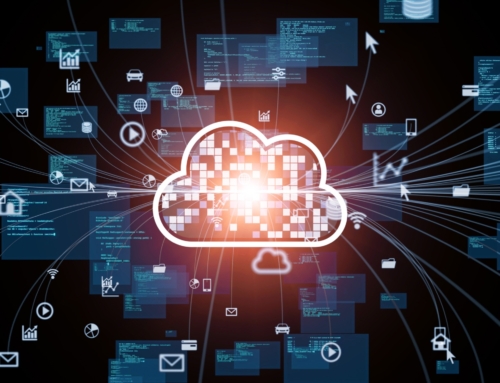The Benefits of Decentralized Backups for Ransomware Defense
Decentralized Backups: A Strong Defense Against Ransomware
Ransomware remains one of the most disruptive threats in today’s cyber landscape. This type of malware encrypts a victim’s files and demands payment for their release — often halting operations, costing millions in recovery expenses, and damaging an organization’s reputation. While preventive measures like firewalls and endpoint protection are essential, history has shown that no defense is foolproof. That’s why a resilient backup strategy is one of the most important safeguards a business can have.
One approach that is gaining traction is the decentralized backup model, which stores data across multiple independent locations or nodes instead of in a single, centralized repository. This distribution makes it harder for ransomware to encrypt or destroy all copies of critical data — and ensures clean, recoverable backups remain available after an attack.
Why Decentralized Backups Are More Ransomware-Resistant
Traditional, centralized backup systems can be a single point of failure. If ransomware reaches the backup server, all stored copies can be compromised in one strike. Decentralization changes this equation by spreading backups across multiple, separate systems or geolocations.
Key benefits include:
-
Reduced Risk of Total Loss – Even if one backup location is hit, others remain unaffected.
-
Faster Recovery – Data can be restored from the nearest or least-impacted location.
-
Geographic Redundancy – Protects against both cyber incidents and physical disasters.
-
Harder for Attackers to Wipe Everything – Attackers must compromise multiple systems to succeed.
How Decentralized Backups Help During a Ransomware Attack
When ransomware strikes, response time is critical. Decentralized backups allow security teams to:
-
Isolate the breach by identifying which nodes are affected.
-
Restore quickly from unaffected nodes without paying the ransom.
-
Maintain business continuity while systems are rebuilt.
Real-world examples show the impact. Organizations that relied on decentralized backups after an attack were able to recover up to 60% faster than those using centralized-only backups — a difference that can mean the survival of the business.
Best Practices for Building a Decentralized Backup Strategy
To maximize protection against ransomware, businesses should:
-
Store backups in multiple, physically and logically separated locations.
-
Use a mix of online and offline (air-gapped) backups.
-
Regularly test recovery procedures to ensure they work under real-world conditions.
-
Keep backup systems patched and configured to prevent them from becoming attack targets.
-
Integrate backup alerts into the organization’s incident response plan.
Did You Know? Ransomware can encrypt not just primary systems, but attached backup drives and cloud repositories if they are directly accessible.
Looking Ahead: Backup as Part of a Broader Defense Strategy
Decentralized backups are not a silver bullet — but they are a powerful layer in a defense-in-depth approach to cybersecurity. Combined with network segmentation, endpoint protection, and continuous monitoring, they form a foundation for resilience in the face of ransomware.
If your business is rethinking its backup strategy, consider Alvaka’s DRworx. DRworx provides fully managed disaster recovery solutions designed to protect your critical systems, test recovery plans, and ensure you can get back online quickly after an incident — whether from ransomware, hardware failure, or natural disaster.
In a world where it’s not a matter of if but when a cyber incident occurs, the ability to recover quickly can be the deciding factor between a temporary setback and a long-term crisis.
FAQ
What is ransomware and how does it impact businesses? ▼
Ransomware is a type of malicious software designed to block access to a computer system or data, typically by encrypting it, until a sum of money is paid. For businesses, this can mean the loss of critical data, disruption of operations, financial loss, and damage to the company’s reputation. Therefore, it’s vital for businesses to implement robust security measures to mitigate these risks.
How do backup strategies play a role in defending against ransomware? ▼
Backup strategies are essential in ransomware defense as they ensure that a business can recover access to their data after an attack. Effective backup solutions allow businesses to restore their data without paying the ransom, thus minimizing downtime and financial impact. Regularly backing up data and ensuring that these backups are secure and easily accessible is critical for any comprehensive cybersecurity strategy.
What are decentralized backups and how do they differ from traditional methods? ▼
Decentralized backups involve storing data across multiple, distributed nodes or locations, rather than in a single centralized repository. Unlike traditional, centralized backups that rely on a single point for data storage, decentralized backups create multiple copies of data spread across different sites or systems, adding layers of protection and making it more difficult for ransomware to compromise all backup copies.
Can decentralized backups improve my business’s resistance to ransomware? ▼
Yes, decentralized backups can significantly enhance your business’s resistance to ransomware. By eliminating single points of failure and distributing data across various locations, these backups reduce the risk that all your data can be encrypted or held hostage by ransomware, thereby bolstering your organization’s overall cybersecurity posture.
What vulnerabilities do centralized backups have in relation to ransomware attacks? ▼
Centralized backups have the inherent vulnerability of being a single target for ransomware attacks. If a ransomware manages to infiltrate the centralized system, it has the potential to encrypt or destroy all backup data stored there, leaving no fallback options for data recovery, consequently exacerbating the impact of the attack.
How does decentralization of backups augment IT security? ▼
Decentralization augments IT security by introducing redundancy and reducing the likelihood that a single ransomware attack can simultaneously compromise all copies of the backup data. Furthermore, decentralized systems can be designed to isolate incidents, ensuring that a breach in one node does not automatically lead to vulnerabilities in others, thus maintaining the integrity of the backup ecosystem.
What are the key benefits of decentralized backups in terms of data redundancy? ▼
The key benefits of decentralized backups when it comes to data redundancy include multiple, independent copies of data, geographical dispersal of backups, and enhanced resilience to localized failures, cyber-attacks, or physical disasters. This multifaceted approach ensures that if data is lost or compromised in one location, other copies remain unaffected and available for recovery.
How can decentralized backups reduce the risk of data loss? ▼
Decentralized backups reduce data loss risk by employing a distributed architecture that mitigates the damage caused by any single ransomware attack. Given that backups are stored in multiple locations, the chance that all backup data can be encrypted or destroyed by a single incident is greatly diminished, thereby ensuring that businesses can recover essential data and maintain continuity even in the event of an attack.
Do decentralized backups guarantee complete protection from ransomware? ▼
While decentralized backups significantly improve protection against ransomware, no system can offer absolute guarantees. However, these backup strategies are an integral part of a layered defense approach that, when combined with other security measures, can provide a robust shield against various cyber threats and help ensure business resilience.
What steps should our business take to implement decentralized backups? ▼
To implement decentralized backups, businesses should start by evaluating current backup and disaster recovery plans. One should identify critical data sets and systems, and then establish a decentralized infrastructure that includes multiple locations, possibly incorporating cloud services and off-site storage. It’s also important to set up regular backup schedules, test recovery processes, and maintain strong security practices across all nodes in the network.







